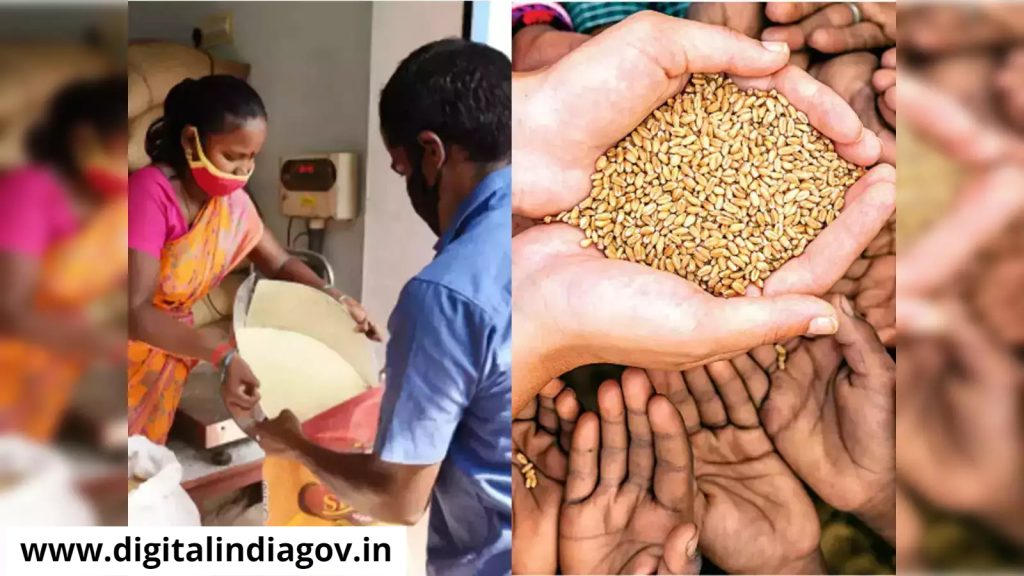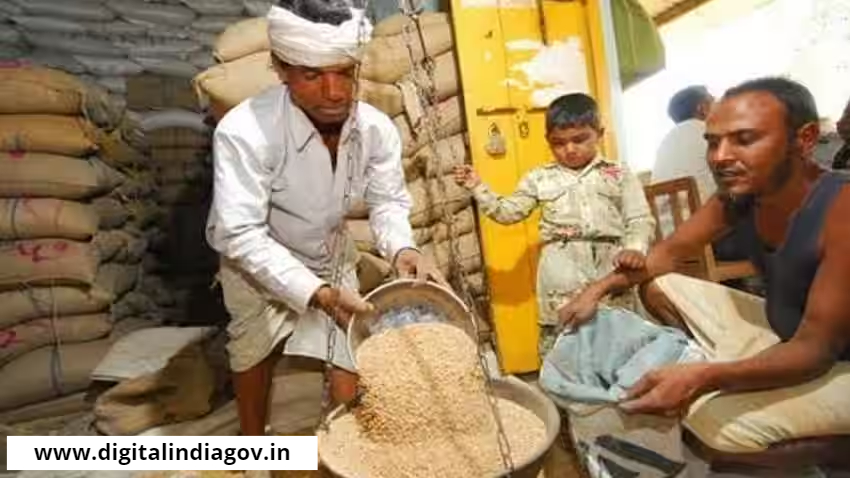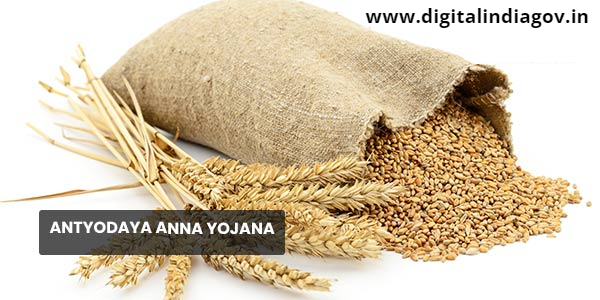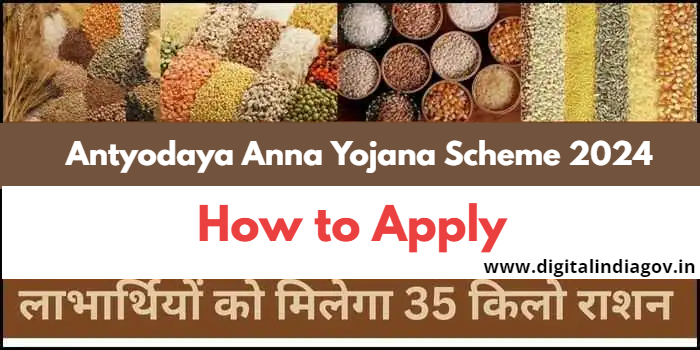Antyodaya Anna Yojana Scheme: The country’s central government launched the Antyodaya Anna Yojana to assist residents who lack the funds to purchase rations. The beneficiary families would receive Antyodaya ration cards under this initiative. They will receive a 35-kilogram ration each month using this card. In order to protect families below the poverty line from the effects of growing inflation, the government launched this program with the goal of providing rations at a minimum price.
If you’d want to benefit from this program, we’ll explain how to apply for the Antyodaya Anna Yojana and what advantages it offers later on in this post. In addition, we will provide you with further details, such as what the Antyodaya Anna Yojana is. Will also provide details like the rationale behind launching this program, qualifications, necessary paperwork, etc. Please read our article through to the very end for comprehensive information about the Antyodaya Anna Yojana.

Also Read: SBI Senior Citizen Savings Scheme, Digitize India, Digitize India Platform, Work From Home Jobs, Celebrity Phone Number
Contents
Antyodaya Anna Yojana Scheme 2024
Antyodaya Anna Yojana Scheme: The Department of Food Supplies and Consumer Affairs of the Central Government introduced the Antyodaya Anna Yojana on December 25, 2000. The recipients of this program will receive Antyodaya ration cards. Through this, they will receive a monthly 35 kg ration, consisting of 20 kg of wheat and 15 kg of rice. Holders of Antyodaya ration cards will receive extremely low prices, such as ₹2 for wheat and ₹3 for rice per kg.
All of the nation’s impoverished families and disabled citizens will profit from this program and be able to provide for their families. We want to inform you that this initiative has also included people with disabilities. In order to receive Antyodaya Anna Yojana benefits, you must
Antyodaya Anna Yojana 2024 Overview
| Name of the Scheme | Antyodaya Anna Yojana |
| who started | Central government |
| Department | Food Supply and Consumer Department |
| Beneficiary | poor citizens of the country |
| Objective | To distribute ration at minimum price to poor citizens. |
| Year | 2024 |
| Application Process | Online / Offline |
| Official Website | https://dfpd.gov.in/pds-aay |
What is the objective of the Antyodaya Anna Yojana Scheme?
The government’s primary goal in initiating the Antyodaya Anna Yojana 2024 is to supply ration facilities to the nation’s economically disadvantaged families. Numerous impoverished households in our nation go without even three meals a day. They lack the funds to purchase rations. Consequently, these low-income households are given Antyodaya Ration Cards by the government. by means of which he will receive a monthly ration of 35 kg. The standard of living for low-income households will rise thanks to this program.
Benefits and features of Antyodaya Anna Yojana 2024
- The government launched the Antyodaya Anna Yojana in order to help the nation’s impoverished citizens.
- The beneficiary families will receive Antyodaya ration cards through this project.
- The recipient will receive 35 kg of ration each month using this ration card.
- It will see the distribution of 15 kg of rice and 20 kg of wheat.
- Wheat will only cost ₹ 2 per kg and rice will cost ₹ 3 per kg to holders of Antyodaya ration cards.
- The AAY Programme will provide coverage to 2.50 crore low-income families.
- The primary goal of this program’s debut is to assist severely low-income households.
- This system will also cover those with disabilities.
- Poor families will not have to go to bed hungry thanks to this program, since they will
Criteria adopted for identification of families
- Those who operate in the informal sector on a daily basis, such as watchmen, porters, rickshaw pullers, road workers, and rural artisans and craftsmen like potters, leather artisans, weavers, blacksmiths, and carpenters, are classified as landless agricultural workers, marginal farmers, and Fruit vendors, snake charmers, rag pickers, shoemakers, the impoverished, and other individuals in comparable situations can be found among vendors in both rural and urban places.
- A person over 60 who lacks the means of subsistence or is not covered by social assistance, or who is a widow, sick, invalid, or both.
- The beneficiary must provide the income certificate that his local patwari issued in order to register for this program. It would also need to prove that he was no longer in possession of a ration card.
- families of widows, ill, crippled, or senior citizens
Also Read: PM Shri Yojana
Beneficiaries of urban areas of Antyodaya Anna Yojana
- Families with annual income up to Rs 15,000
- Fruit and flower vendors on the footpath
- daily wage earner as a rickshaw puller
- slum dweller
- construction workers
- domestic servant
- widow or disabled
- Cobbler
- Ragpicker
- old age pensioner
- landless agricultural labourer
What is the eligibility for Antyodaya Anna Yojana
the individual who satisfies the eligibility requirements listed below. The benefits of this arrangement will only be available to him. Consequently, kindly review the eligibility requirements listed below:
- The AAY program will only provide benefits to families that fall below the federal poverty limit.
- The candidate must be chosen in order to receive an Antyodaya Ration Card from the authorized body.
- An income certificate issued by the relevant Patwari for the beneficiary family should be present.
- There shouldn’t be any form of ration card held by the applicant already.

Antyodaya Anna Yojana 2024 Documents
The candidate must be below the federal poverty level. The designated authority must pick the applicant for an AAY ration card.
- Aadhar card
- residence certificate
- identity certificate
- Beneficiary’s income certificate issued by Patwari
- Affidavit of the applicant that he does not already have a ration card.
- Mobile phone number
- passport size photo
Antyodaya Anna Yojana State Wise List
| Andhra Pradesh | click here |
| Bihar | click here |
| Chhattisgarh | click here |
| Delhi | click here |
| Gujarat | click here |
| Haryana | click here |
| Himachal Pradesh | click here |
| Jammu and Kashmir | click here |
| Jharkhand | click here |
| Karnataka | click here |
| Kerala | click here |
| Madhya Pradesh | click here |
| Maharashtra | click here |
| Odisha | click here |
| Punjab | click here |
| Rajasthan | click here |
| Tamil Nadu | click here |
| Uttar Pradesh | click here |
| Uttarakhand | click here |
| West Bengal | click here |
Conclusion
The Antyodaya Anna Yojana (AAY) is a program designed to feed the poorest of the poor with heavily subsidized food grains in an effort to end hunger in India. The program offers 35 kg of food grains per month to 2.5 crore (25 million) households at a low cost. The public distribution system is used by the federal and state governments to carry out the program. The program helps the underprivileged and society as a whole in a number of ways, including food security, health, empowerment, and economic stability. The program is a start towards turning India into a wealthy and hunger-free country.

Also Read: NLM Scheme
FAQ’s
Q: What is Antyodaya Anna Yojana and which citizens of the country will be given its benefit?
Ans: The nation’s impoverished and disabled citizens will profit from the program.
Q: Will Antyodaya Anna Yojana benefits be provided to citizens of rural and urban areas?
Ans: Yes, all families in both rural and urban regions that fall below the poverty level will receive it.
Q: How do you request food from Antyodaya Anna Yojana?
Ans: Applying online for food under the Antyodaya Anna Yojana can be done via the State Food (Ration) Supply Department’s official website.
Q: How many kg of ration will be distributed per month to the beneficiary citizen under the Antyodaya Ration Card?
Ans: A 35 kg monthly diet, consisting of 20 kg of wheat and 15 kg of rice, will be given to each citizen.
Q: What facilities have been provided to the beneficiaries under Antyodaya Anna Yojana?
Ans: There is food service available.
Q: Citizens of which countries will be eligible for this scheme?
Ans: Antyodaya Anna Yojana will be available to urban and rural residents who are economically disadvantaged and disabled.
Suggested Link: Scholarship Portal, Indnewsupdates.com
@Man
